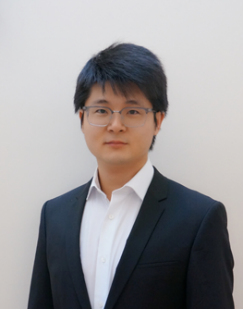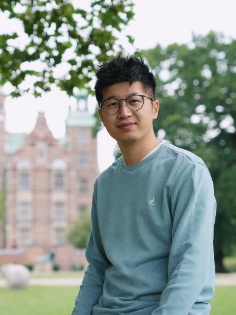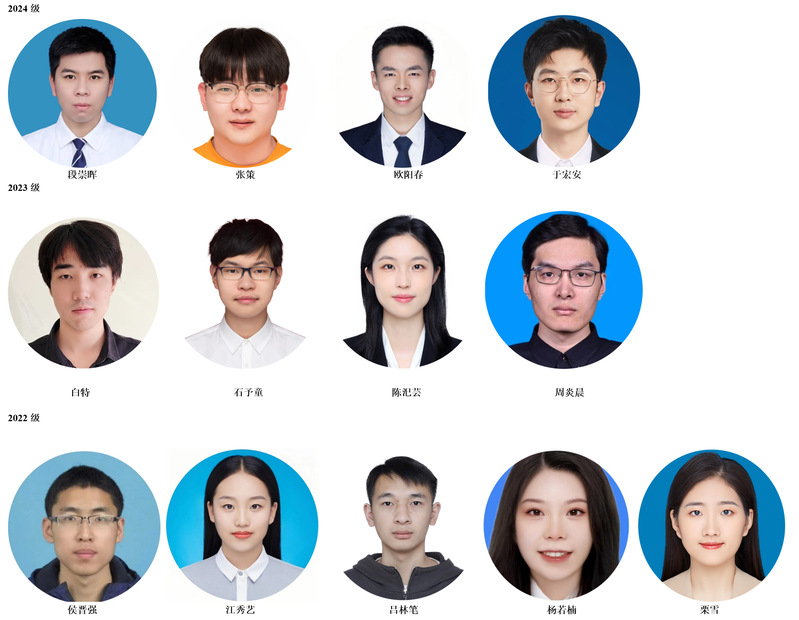


李睿琪,博士,副教授。博士毕业于北京师范大学系统科学学院,博士期间在MIT与Boston University进行联合培养,本科就读于电子科技大学国际化软件人才实验班。主要研究方向为城市科学、复杂网络、流行病传播动力学。目前发表SCI、SSCI论文二十余篇,引用1000余次,相应工作发表在Nature Communications, Communications Physics, Social Networks, Chaos, Physical Review E, Physical Chemistry Chemical Physics, Journal of Materials Chemistry A, Green Chemistry等SCI一区Top与二区Top期刊,主持包括国家自然科学基金面上项目、国家自然科学青年基金在内的多项项目;并在Conference on Complex Systems (CCS), NetSci, StatPhys, NetSciX, CICTP, Sunbelt, FRCCS等多个国际大会上作大会报告环节的点火报告(Lightning Talk)、主旨报告(Keynote)与口头报告,曾荣获第十二届社会网与社会资本研究年会最佳论文奖、第六届全国大数据与社会计算青年学者论坛新星奖。目前是Humanities & Social Sciences Communications、PLOS Complex Systems、Scientific Reports、Frontiers in Physics等SCI、SSCI与A&HCI期刊的编辑,SCI期刊Journal of Physics: Complexity客座编辑,中国管理科学与工程学会复杂系统管理分会组织工作委员会副主任委员、中国系统工程学会系统理论专委会委员、中国人工智能学会社会计算与社会智能专委会委员及新星执委会主席(兼任专委副秘书长),是Nature Human Behaviour、PNAS Nexus、Cities、Expert Systems with Applications、Technological Forecasting & Social Change、EEE Transactions on Computational Social Systems、Habitat International、TheWebConf (WWW)、IEEE VIS、CCS等多个SCI、SSCI期刊与重要学术会议的审稿人或程序委员会成员。

卢罡,博士,副教授。博士毕业于北京化工大学信息科学与技术学院。2013年在MIT的CCI(群体智能中心)访问半年。现为CCF高性能计算专委会委员、大数据本科专业负责人、北京化工大学信息科学与技术学院高性能计算平台负责人。主要研究方向为复杂网络与社会计算、面向大规模图计算的大数据技术及分布式与并行计算技术、人工智能应用技术。目前发表SCI、EI、中文核心论文共计三十余篇;主持、参与横向、纵向科研项目及教改项目共计二十余项;参与获得省部级技术发明奖一项、省部级科技成果鉴定一项。

谷伟伟,博士,副教授。博士毕业于北京师范大学系统科学学院,博士期间在印第安纳大学计算机系与芝加哥大学社会学系进行联合培养。研究方向为图卷积神经网络、多源异质数据挖掘、表征学习与强化学习相结合的网络鲁棒性分析。相应工作发表在Nature Communications、Social Networks、Journal of Social Computing等期刊,主持博士后面上基金1项,目前是Journal of Social Computing期刊编辑。
邮箱:weiweigu@buct.edu.cn

刘军利,博士,副教授。博士毕业于中国科学院大学资源与环境学院,曾在西安电子科技大学进行博士后研究。主要研究方向为地理空间分析、时空大数据挖掘与社会计算,在Atmospheric Environment、Journal of Environmental Management等Top期刊上发表近十篇论文,主持包括国家自然科学青年基金、杭州市重大科技创新项目在内的多项项目。
邮箱:liujunli@buct.edu.cn

访问学者

毕业生
2021级
史定一 [中国建设银行]
杨宇 [京东]
杨澳 [平安保险]
2020级
崔天雨 [北方华创]
梁婧 [京东方]
石铭 [中国联通]
2019级
尚璠 [阿里巴巴]
刘晨馨 [字节跳动]
高甜丽 [西安明德学院,讲师]
金晶 [中软信息系统工程有限公司]
刘艳伟 [京东]
毕志远 [麒麟软件]
2018级
卢凌云 [北方华创]
罗安康 [兴业银行]
崔晨磊 [小米]
2017级
钟厚 [京东]
蔡广妊 [广年达]
赵正阳 [中华棉花集团有限公司]
郭安然 [去哪儿旅行]
发表论文
●Dingyi Shi#, Fan Shang#, Bingsheng Chen*, Paul Expert, Linyuan Lv*, H. Eugene Stanley, Renaud Lambiotte*, Tim S. Evans, Ruiqi Li*. Local dominance unveils clusters in networks. Communications Physics(一区Top), 2024, 7:170
●Ruiqi Li, Lei Dong, Jiang Zhang, Xinran Wang, Wenxu Wang, Zengru Di, H. Eugene Stanley. Simple spatial scaling rules behind complex cities. Nature Communications, 2017, 8: 1841
●Weiwei Gu, Aditya Tandon, Yong-Yeol Ahn, Filippo Radicchi. Principled approach to the selection of the embedding dimension of networks. Nature Communications, 2021, 12: 3772
●Dingyi Shi#, Fengyi Zhou#, Wenbo Mu, Cheng Ling*, Tiancheng Mu, Gangqiang Yu*, Ruiqi Li*. Deep insights into the viscosity of Deep Eutectic Solvents by XGBoost-based model plus SHapley Additive explanation. Physical Chemistry Chemical Physics (SCI, 二区Top), 2022, 24 (42), 26029-26036.
●Fengyi Zhou#, Dingyi Shi#, Wenbo Mu, Shao Wang, Zeyu Wang, Chenyang Wei, Ruiqi Li*, Tiancheng Mu*. CGAN accelerates deep eutectic solvents discovery for recycling Lithium-ion battery cathodes. Green Chemistry (SCI, 一区Top, IF 11.03), 2024, 26, 7857-7868.
●Chenyang Wei, Dingyi Shi, Zhaohui Yang, Zhimin Xue*, Shuzi Liu, Ruiqi Li*, Tiancheng Mu*. Data-driven design of double-atom catalysts with high H2 evolution activity/CO2 reduction selectivity based on simple features. Journal of Materials Chemistry A (SCI, 二区Top, IF 11.9), 2023, 11: 18168.
● Chenxin Liu, Yu Yang, Bingsheng Chen*, Tianyu Cui, Fan Shang, Jingfang Fan*, Ruiqi Li*. Revealing spatio-temporal interaction patterns behind complex cities. Chaos, 2022, 32: 081105.
● Junli Liu, Siyuan Wang, Kemin Zhu, Jinghao Hu, Runkui Li*, Xianfeng Song. Spatial patterns of the diurnal variations of PM 2.5 and their influencing factors across China. Atmospheric Environment. 2023, 120215.
● Wei Hou, Junli Liu*, Ulrich Walz. Optimization of green infrastructure networks in the perspectives of enhancing structural connectivity and multi-functionality in an urban megaregion. Journal of environmental management, 2023, 348: 119084.
● Junli Liu, Yun Zhang, Lei Yang, Yuying Li. Hydrological Modeling in the Chaohu Lake Basin of China—Driven by Open-Access Gridded Meteorological and Remote Sensing Precipitation Products. Water, 2022, 14 (9): 1406.
● Ruiqi Li*, Shuai Gao, Ankang Luo, Qing Yao*, Bingsheng Chen, Fan Shang, Rui Jiang, H. Eugene Stanley*. Gravity model in dockless bike-sharing systems within cities.Physical Review E, 2021,103: 012312
●Ruiqi Li*, Peter Richmond, Bertrand M. Roehner*. Effect of population density on epidemics. Physica A, 2018, 510: 713-724
●Ruiqi Li*, Jing Liang, Cheng Cheng*, Xiaoyan Zhang, Longfeng Zhao, Chen Zhao, H. Eugene Stanley*. The evolution of k-shell in syndication networks reveals financial performance of venture capital institutions. Social Networks (一区Top), 2024, 76: 191-202.
●Weiwei Gu, Jarder Luo*, Jifan Liu. Exploring small-world network with an elite-clique: Bringing embeddedness theory into the dynamic evolution of a venture capital network. Social Networks, 2019, 57: 70-81
● Ruiqi Li, Lingyun Lu, Weiwei Gu*, Shaodong Ma, Gang Xu*, H. Eugene Stanley*. Assessing the attraction of cities on venture capital from a scaling law perspective. IEEE Access, 2021, 9: 48052-48063
● Yongming Han, Xiaoyi Lou, Mingfei Feng, Zhiqiang Geng*, Liangchao Chen*, Weiying Ping, Gang Lu*. Energy consumption analysis and saving of buildings based on static and dynamic input-output models. Energy, 2021, 239: 122240
● Peisong Yang, Gang Lu*, Qingyuan Yang*, Lei Liu, Xin Lai, Duli Yu. Analyzing Acetylene Adsorption of Metal-Organic Frameworks Based on Machine Learning. Green Energy & Environment, 2021, doi.org/10.1016/j.gee.2021.01.006
● Dingyi Shi#, Fengyi Zhou#, Wenbo Mu, Cheng Ling*, Tiancheng Mu, Gangqiang Yu*, Ruiqi Li*. Deep insights into the viscosity of Deep Eutectic Solvents by XGBoost-based model plus SHapley Additive explanation. Physical Chemistry Chemical Physics, 2022, 24 (42), 26029-26036
●Weiwei Gu, Li Gong, Xiaodan Lou, Jiang Zhang*. The hidden flow structure and metric space of network embedding algorithms based on random walks. Scientific Reports, 2017, 7: 13114
● Guangren Cai, Gang Lu*, Junxia Guo, Cheng Ling, Ruiqi Li*. Fast Representative Sampling in Large-Scale Online Social Networks. IEEE Access, 2020, 8: 77106-77120, doi.org/10.1109/ACCESS.2020.2989504
●Lei Dong, Ruiqi Li*, Jiang Zhang*, Zengru Di. Population-weighted efficiency in transportation networks. Scientific Reports, 2016, 6: 26377
●Ruiqi Li*, Wenxu Wang, Zengru Di. Effects of human dynamics on epidemic spreading in Cote d'Ivoire. Physica A, 2017, 467: 30-40
●Weiwei Gu, Ao Yang*, Lingyun Lu, Ruiqi Li*. Unveiling latent structure of venture capital syndication networks. Entropy, 2022, 24(10): 1506
●Weiwei Gu, Fei Gao, Ruiqi Li*, Jiang Zhang*. Learning universal network representation va Link prediction by graph convolutional neural networks. Journal of Social Computing, 2021, 2(1): 43–51
●Chen Wang, Lu Wang, Yanbo Xue, Ruiqi Li*. Revealing spatial spillover effect in high-tech industry agglomeration from a high-skilled labor flow network perspective. Journal of Systems Science and Complexity, 2022, 35: 839-859
●李睿琪, 刘晨馨, 尚璠, 狄增如*. 系统科学视角下的城市建模与城市计算研究进展. 电子科技大学学报, 2022, 51(5): 786-799
●狄增如, 李睿琪. 挖掘复杂系统的普适规律. 系统科学进展第2卷 (郭雷 主编), 科学出版社, 2019, 26-40.
● Ankang Luo#, Shuai Gao#, Ao Yang, Gang Lu*, Rui Jiang*, Yanyan Xu, Ruiqi Li*. Revealing the different characteristics of travelers and their transport media: a case study of dock-less bike sharing system. Proceedings of the 20th COTA International Conference of Transportation Professionals (CICTP 2020), 2020, 5167-5179
● Gang Lu, Jingyang Gao, Ruiqi Li. iSchood: a Tool Software for Identifying Suspicious Copied Homework Documents with Definitive Contents. Proceedings of 15th International Conference on Computer Science & Education (ICCSE), 2020, IEEE, pp. 511-516.
●Zhiqiang Geng, Guofei Chen, Yongming Han*, Gang Lu, Fang Li. Semantic relation extraction using sequential and tree-structured LSTM with attention. Information Sciences, 2020, 509(1): 183-192
●于悦, 卢罡*,郭俊霞. 局部协同选择聚类的多视角社区发现研究. 计算机系统应用, 2018, 27(1): 20-27.
●马路,卢罡*,郭俊霞. 基于时变差别适应度的网络演化模型. 计算机工程, 2017, 43(4): 94-99
●尤枫, 曹天亮,卢罡*.在线社交网络的自适应UNI采样方法. 计算机工程, 2017, 43(4): 200-206
● 李睿琪, 王伟, 杨慧, 舒盼盼, 潘黎明, 崔爱香, 唐明*. 复杂网络上流行病传播动力学的爆发阈值解析综述. 复杂系统与复杂性科学, 2016, 13(1): 1-39.
●Lu Ma, Gang Lu*, Junxia Guo. Observing the Evolution of Social Network on Weibo by Sampled Data. IEEE ICIS2016, Okayama, Japan, 2016
●李甜甜,卢罡*,许南山, 郭俊霞. 基于k-core的大规模复杂网络压缩布局算法. 计算机工程, 2016, 42(50): 308-312
●李欢,卢罡*,郭俊霞. 基于GPU的大尺度网络零模型分组生成并行算法. 计算机工程与设计, 2016, 37(1): 93-99
●杨强, 卢罡*.微博社交网络模型的建立及其性质研究. 计算机工程与应用, 2015, 52(12): 42-48
●梁宏, 许南山, 卢罡*.新浪微博用户及其微博特征分析. 计算机工程与应用, 2015, 51(7): 141-148
●卢罡*,徐勤良, 许南山, 郭俊霞. 复杂网络松耦合分布式计算框架的设计与实现. 计算机工程, 2015, 41(11): 73-76, 93
●李欢,卢罡*,郭俊霞. 复杂网络零模型的量化评估. 计算机应用, 2015, 35(6): 1560-1563, 1572
●Huan Li, Gang Lu*, Junxia Guo. Generating Null Models for Large-Scale Networks on GPU. 2015 International Industrial Informatics and Computer Engineering Conference (CPCI-S), Xi’an, P.R. China, 2015
●李甜甜,卢罡*, 许南山, 郭俊霞. 基于GPU的大尺度网络布局显示. 计算机系统应用, 2015, 24(12): 25-33
●Ruiqi Li*, Lei Dong, Xinran Wang, Jiang Zhang. Geometric origins of the Complex Cities. Proceedings of European Conference on Complex Systems, 2014, Chapter 5: 45-57
●许南山, 李浩,卢罡*.在线社交网络的UNI64采样方法. 计算机系统应用, 2014, 23(12): 206-212
● Ruiqi Li, Ming Tang*, Pak-Ming Hui. Epidemic spreading on multi-relational networks. Acta Physica Sinica, 2013, 62(16): 168903. DOI: 10.7498/aps.62.168903 [in Chinese]
[李睿琪, 唐明*, 许伯铭. 多关系网络上的流行病传播动力学研究. 物理学报, 2013, 62(16): 168903.]
●Gang Lu*, Shumei Liu, Kevin Lü. Crawling Microblog by Common Designed Software. TELKOMNIKA Indonesian Journal of Electrical Engineering, 2013, 11(7): 3618-3626
●赵雅端,卢罡*, 赵英, 山岚. 基于GPU的复杂网络社区挖掘算法并行计算. 计算机应用研究, 2013, 30(8): 2426-2428
●Hong Liang, Gang Lu*, Nanshan Xu. Analyzing user influence of microblog. The 5th International Conference on Advanced Computational Intelligence (EI), Nanjing, P.R. China, 2012
●王炜,卢罡*,许南山. 基于文献关系模型的个性化文献管理方法. 计算机系统应用, 2011, 20(8): 58-62
●Junkai Yi, Gang Lu*, Kevin Lü. Monitoring Cumulated Anomaly in Databases. International Journal of Software Engineering and Knowledge Engineering (SCI), 2009, 19(3): 421